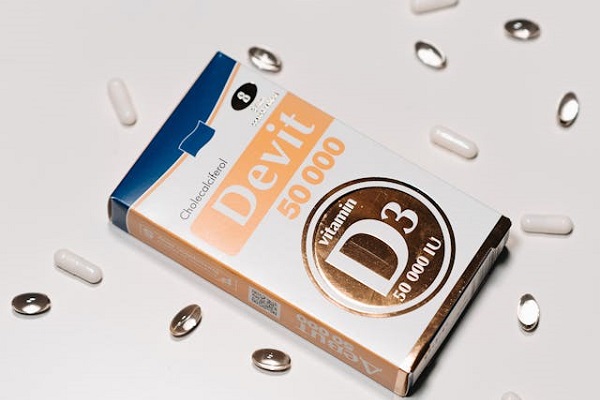Words: Dr Ryan N HARRISON
Vitamin D has been getting a lot of press lately. A Google search of the term ‘vitamin D benefits’ yields a whopping number of results. This means it is obviously something that people are interested in, are looking into, and are talking about. In fact, William Faloon of the Life Extension Foundation wrote that “no other nutrient, drug, or hormone has gained more scientific credibility than vitamin D.” Yet surprisingly, most people that I know don’t know much about vitamin D and the incredible importance of this micronutrient. So, let’s look a little closer at what this vitamin is and does, as well as how you can benefit from it through proper supplementation.
What Is Vitamin D?
Vitamin D is quite unique among vitamins. For one thing, where other essential nutrients need to be taken into your body via food, or drink, your skin is designed to make vitamin D when it is exposed to sufficient amounts of sunlight. In fact, outside of seafood, most foods found in the natural world don’t contain vitamin D in them, because nature intended your body to make it [This is one reason, incidentally, that products are often ‘fortified’ with it]. Medical News Today describes vitamin D as a “group of fat‐ soluble prohormones.” But what does that mean? It means that vitamin D is actually a collection of hormone precursors that exerts its effects on over 2,000 of the 30,000 genes in your body that make you, you. There are five different types of the vitamin — D1, D2, D3, D4, and D5 — but only vitamins D2 and D3 seem to matter to humans. By far, the more potent of the two is vitamin D3 [cholecalciferol], which research has determined is far more effective and easier for the body to use; you’d have to take three times as much vitamin D2 [ergocalciferol] to get as much out of it as a single dose of vitamin D3.
What Does It Do?
Most people are aware that vitamin D has something to do with bones. After all, it’s often added to dairy products and calcium supplements. And it’s true: without sufficient vitamin D, you can develop rickets, osteoporosis, and osteomalacia. In fact, without vitamin D, your body can’t properly utilise calcium that you get from even common foods and drinks
But vitamin D does much, much more than just guard bone health. Research has uncovered a wide array of ways that this essential ‘wonder vitamin’ impacts your health. These include: combating various cancers, preventing multiple‐sclerosis, lowering risk of gingivitis, alleviating musculoskeletal pain, lowering risk of cavities and periodontal disease, aiding in the detoxification of the brain, eliminating mercury from the body, optimising the immune system, protecting skin health, encouraging fertility, enhancing athletic performance, and even possibly protecting against type-1 diabetes.
Why Do I Need It? How Do I Get It?
Astonishingly, even though vitamin D is an ‘essential’ nutrient that is often added to processed foods in order to ‘fortify’ them, most people are deficient in vitamin D. In fact, one source, which proposes that the optimal level of blood serum vitamin D is 50‐100ng/mL, suggests that an estimated 50‐78 per cent of the general population is deficient, with vitamin D levels in the blood at less than 30ng/mL. What’s more, an estimated 36 per cent of the population may have vitamin D levels lower than even 20ng/mL. Are you one of them? The only way to find out for sure is to have your blood tested for 25‐hydroxyvitamin D, the metabolically active form of the vitamin in the blood.
Once you know whether you need more vitamin D, there are a few different ways to get it. Probably the best way, of course, is from the sun. If you spend sufficient time bare‐skinned in the sun on a regular basis, you may not need supplementation. But what if you don’t live in a climate with year‐round sunshine? Or, if you spend most of your day in home, or office? When you do go out, do you cover yourself in sunscreen? If so, that cuts down on your body’s ability to synthesise vitamin D, as well.
So for many people, supplementation is the best way to achieve optimal levels of vitamin D. Remember that vitamin D3 is the most potent type of vitamin D for supplementation, so be sure that you make that selection. Most vitamin D3 supplements can be found in doses between 1,000 and 5,000IU. For optimal results, research suggests that, for adults, supplementing between 4,600- 10,000IU/day is best. That might sound like a lot, but 10,000IU of vitamin D3 can be achieved with only two pea‐sized capsules, and is equivalent to spending about 30 minutes bare‐skinned in the sun [Keep in mind, however, that you can get too much vitamin D. The Journal of Clinical Endocrinology and Metabolism suggests that toxicity in humans probably occurs after a long‐term daily consumption of 40,000IU/day].
Finally, be sure that the vitamin D supplement you’re using has been manufactured correctly and safely according to current Good Manufacturing Practices [cGMP] set by the US Food and Drug Administration. That way, you’ll know that you’re getting exactly what you’re paying for — no more and no less — and, that it has been tested to be of high quality and purity.
At A Glance
- Vitamin D is a popular supplement today, widely studied, discussed, and marketed
- Vitamin D is unlike other vitamins. Your body can make it out of skin exposure to sufficient sunlight Vitamin D is a group of prohormones that greatly affect over 2,000 genes
- Vitamin D3 is far more effective than D2
- Vitamin D does more than assist with bone health; it has health‐protective and therapeutic effects, as well
- Most people are deficient in vitamin D; supplementing between 4,600‐10,000IU/day is suggested for adults
- Long‐term supplementation with Vitamin D3 is safe, but it should not exceed 40,000IU/day over a period of time.

